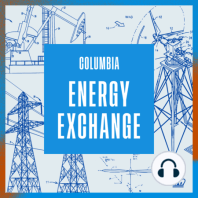42 min listen
Harnessing the Heat Beneath Our Feet
ratings:
Length:
47 minutes
Released:
Nov 7, 2023
Format:
Podcast episode
Description
The practice of capturing steam bursting through the earth’s surface to generate electricity has been around for more than a century. This is the traditional concept of geothermal energy. But thanks to research and development in both the private and public sectors, new forms of capturing subsurface heat have been developed. Fervo Energy, an advanced geothermal start-up, made headlines this year with breakthroughs in drilling techniques inspired by those of oil and gas. After a successful 30-day pilot this summer, known as Project Red, Fervo proved it can produce 24/7 carbon-free energy using enhanced geothermal systems. So what led to these breakthroughs? And what role can geothermal play in the energy transition? This week host Bill Loveless talks with Tim Latimer about innovation in geothermal technology and scaling opportunities in the U.S. Tim is the co-founder and CEO of Fervo Energy. After studying geothermal energy in grad school at Stanford University, he started the company in 2017 with Jack Norbeck. Before Stanford, Tim worked as a drilling engineer for BHP Billiton in the Permian and Eagle Ford basins in Texas. He has also worked as a consultant for the Boston Consulting Group, Biota Technology, and McClure Geo-mechanics.
Released:
Nov 7, 2023
Format:
Podcast episode
Titles in the series (100)
Weighing The Risks Of Solar Geoengineering: This week, Columbia Energy Exchange brings you an episode of another podcast called Catalyst. It’s a weekly show hosted by climate tech veteran Shayle Kann about the future of decarbonization. Each week, different experts, researchers, and... by Columbia Energy Exchange
